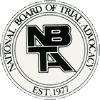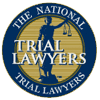FDA Mandates Serious Warnings for Botox, All Botulinum Toxin Products
The FDA has ordered its most serious safety warning be attached to all botulinum toxin products due to reports of serious adverse reactions and also due to risks associated with the lack of interchangeability among the three licensed botulinum toxin products. The FDA will now require manufacturers to add black box warning to labels, issue new medication guides, and implement a Risk Evaluation Management Strategy (REMS) for each product. There are now three FDA-approved botulinum toxin products: Botox and Botox Cosmetic made by Allergan, Myobloc manufactured by Solstice Neurosciences, and Dysport made by Ipsen, which just yesterday received FDA approval to treat cervical dystonia. Reports indicate that the botulinum toxin may spread from the area of injection to other areas of the body, causing symptoms similar to those of botulism, including unexpected loss of strength or muscle weakness, hoarseness or trouble talking, loss of bladder control, trouble breathing, trouble swallowing, double vision, slurred speech, blurred vision, and drooping eyelids. These symptoms have mostly been reported in children with cerebral palsy being treated with the products for muscle spasticity (an unapproved use of the drugs), but the symptoms have also been reported in adults treated both for approved and unapproved uses. Botulinum toxin products have only been approved by FDA for one or more of the following uses: temporary improvement in the appearance of glabellar lines, treatment of strabismus, blepharospasm, cervical dystonia, and primary axillary hyperhidrosis.
"Updated labels for this class of products will help health care professionals and patients better understand the risks and benefits," said Russell Katz, M.D., director of the Division of Neurology Products in the FDA's Center for Drug Evaluation and Research. "Botulinum toxin products have benefits but can cause serious health problems and it is important that anyone who administers or uses these products understands these risks."
At a press briefing on April 30, 2009, Ellis F. Unger, M.D., the FDA's acting Deputy Director of the Office of Drug Evaluation I at the Center for Drug Evaluation and Research, said safety has not been an issue when botulinum toxin is used properly for cosmetic purposes, such as smoothing frown lines. Although he did not disclose the number of adverse events, Dr. Unger said there have also been reports of hospitalizations for aspiration pneumonia and respiratory depression, including cases where patients required ventilators. There have also been a small number of deaths, he said. Officials believe that most of the problems occurred when one product was substituted for another without corresponding dose adjustments.
Click here to view FDA Press Release dated 4/30/09
Click here to view more about Botulinum Toxin Products




















